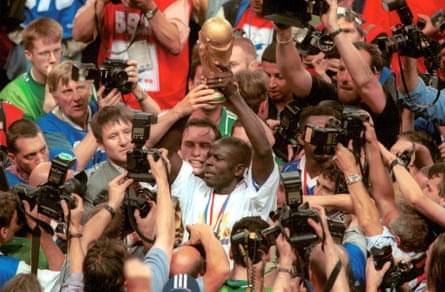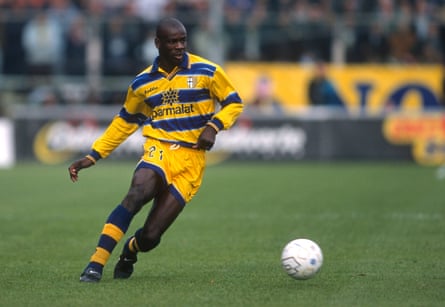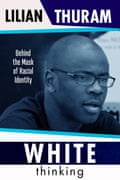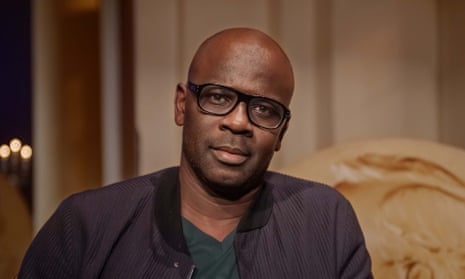For Lilian Thuram, the World Cup has never been enough. Even before ending a playing career in which he won trophies at Monaco, Parma, Juventus and Barcelona as well as the highest honours with France, for whom he holds the record for number of appearances (142), he has been trying to contribute to profound social change.
The foundation he set up in 2008 aims to educate people out of racism. Since hanging up his boots that year he has also, among many other things, campaigned against sexism and homophobia, advised the French government on social integration, served as a Unicef ambassador and, for his efforts to counter discrimination, been awarded honorary degrees by the universities of Stirling and Stockholm. He has written several books. The English version of his latest one, entitled White Thinking: Behind the Mask of Racial Identity, is published on Friday. In it he calls for “race suicide”. He aims to liberate people from “identity prisons”.
He knows these are jolting terms. Thuram believes it is important to prod people, particularly white people, into thinking more deeply about societal structures and race.

“Reni Eddo-Lodge wrote a very good book a few years ago called Why I’m No Longer Talking to White People about Race,” says Thuram. “My book says the opposite: ‘If we are to talk about racism, it’s with whites that we have to talk.’ It’s like with sexism, the people who need to be educated are men and boys. What I’m trying to say is: ‘Right, there is racism: why? And why do we say there are white people and non-white people? Why do we say there are people of colour?’ If you don’t know the reasons, you won’t be able to understand why prejudices exist. People need to know the history of the racialisation of the world.”
Thuram explains that he has known that race is an imposition from without, ever since he moved from Guadeloupe, where he was born, to Paris at the age of nine. That is when, owing to the perception of others, he “became black”.
“No one is born black or white,” he says. “It is important that people who are said to be white understand what it is to be white. We all need to be aware that history has led to us wearing skin-colour masks and in the book I invite people to remove those masks. To remove them, you have to know the history of these identities linked to skin colour, the social hierarchies that were devised. When we understand history, we understand that racism has always been a scam. It has always been a political construction designed to smash the ties of solidarity between human beings in order to exploit certain people so that a minority can get rich.
“To be able to change we have to lift ourselves out of categories: men, women, black and white, and so on. We have to promote the idea that we are human beings before anything else. Generally speaking, the majority don’t want change because they have settled into their habits. So a minority has to be able to instigate change.”
Football is not the focus of White Thinking. But since the sport is a prominent part of society, it can influence and be influenced. Thuram says what players do matters. “It’s very important that players continue to take the knee before matches, to condemn the injustices that affect people of colour,” he says. “English football has to be congratulated for continuing to do this; they are really pioneers in developing awareness, at least in football. What they are doing encourages people to reflect.”

Thuram believes it is also important that white players are proactive in challenging racial inequality rather than leaving it to players of colour to lead the way. “Very often players who are targets of racism are asked: ‘What should we do about it?’ That is very hypocritical because it suggests it is up to them to find solutions as if they are the problem. It is up to white players, who are usually in the majority, to refuse to play on. Then the powers-that-be will be forced to take action. Because otherwise their business will suffer.”
Thuram does not expect governing bodies to take strong steps to engender change unless pressured into doing so. “Change never comes at first from the authorities. If you want to bring about change, you have to do things so that the authorities are compelled to change. For example, I am talking to you from Italy, where people often ask me: ‘Are the authorities doing enough to tackle racism?’ And I say: ‘No. I arrived in Italy in 1997 and there were racist chants in stadiums. Now it’s 2021 and there are still racist chants in stadiums. That means the authorities have not done their job.’

“All I’m doing is taking a photograph of the reality. Since they have not generated change, we need another strategy. Historically, it’s individuals who oblige systems to change. I’m talking about individuals of all colours who force the system to evolve. That’s how things have happened in history, whether it’s in the fight for gender equality, sexual equality or whatever.
“They have to change because otherwise, it will be against their business interests. As long as matches continue when there are outbreaks of racism, the institutions will continue to make only superficial attempts to address it. They will only make substantive change on the day when white players decide to stop playing. Then the institutions will be forced to find solutions.”
Thuram is encouraged by activism he sees from “young black players who are no longer prepared to accept what older ones accepted … and who make their teammates, opponents and supporters think”. He is equally encouraged by the stances taken by some white players. “For example, when I see the Liverpool captain, Jordan Henderson, speaking out against racism, I think it’s fantastic. Because it means that he has understood that racism affects him too.
“He was not neutral, he realised it was not the responsibility of the minority of people who are targets of racism to condemn it. Players like him set an example. The more people who call out racism, the closer we get to equality. To say nothing is to endorse the violence that is racism. I wrote the book to help people understand how things are organised, that racism is a trap. You have to understand that.”
White Thinking: Behind the Mask of Racial Identity by Lilian Thuram is out on 29 October, published by Hero, priced £18.99
